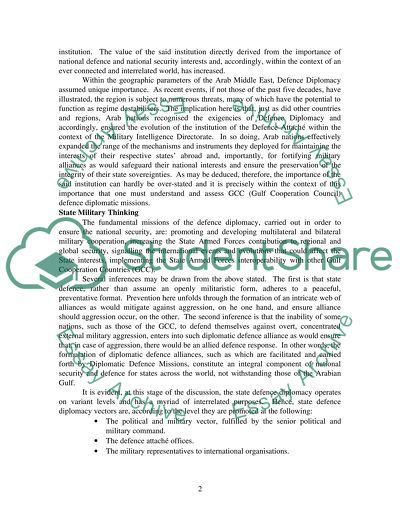Cite this document
(“Defence Diplomacy Essay Example | Topics and Well Written Essays - 1500 words”, n.d.)
Retrieved de https://studentshare.org/miscellaneous/1506686-defence-diplomacy
Retrieved de https://studentshare.org/miscellaneous/1506686-defence-diplomacy
(Defence Diplomacy Essay Example | Topics and Well Written Essays - 1500 Words)
https://studentshare.org/miscellaneous/1506686-defence-diplomacy.
https://studentshare.org/miscellaneous/1506686-defence-diplomacy.
“Defence Diplomacy Essay Example | Topics and Well Written Essays - 1500 Words”, n.d. https://studentshare.org/miscellaneous/1506686-defence-diplomacy.


